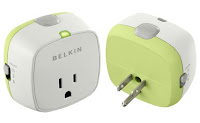We've all seen the television show Myth Busters. Two funny guys who spent an hour every week disproving internet rumors and old wives tales. How hard is it to find a needle in a haystack?
Here at Emery Air and Heat, we're myth busting too! Below you will see that in the air conditioning industry there also are some myths that aren't true.
Myth #1 - Closing off vents in unused rooms will lower your energy bill -
Not only will this NOT make your energy bill lower, it actually causes your unit to work harder. If you have a number of rooms that are not being used, consider a zoned system.
Myth #2 - The lower you set the thermostat, the faster you will cool your home -
Air conditioning systems deliver air the same rate. All you will do is use more energy and make your system work harder.
Myth #3 - Your air conditioning doesn't need to be checked unless there's a problem. NOT true and here's why:
All a/c manufacturers are now requiring at least one maintenance a year to keep the warranty intact. You tune up your car, changing the oil, having the brakes checked etc. An Air conditioning system is one of the most expensive items you buy, why would you neglect it? We perform a 21 pt checkup on our customers systems at least once a year.
Myth #4- Maintenance plans aren't worth the money -
If you invest 139.00 a year to have someone come to your home and perform a 21 point tune-up this guarantees that if something major goes wrong, you will be covered by your warranty. In this hot Florida weather, air conditioners work hard to keep us cool in our homes.
Myth #5 - Bigger is better -
If you are getting a new air conditioner, the contractor should always do a heat load to ensure you are getting the right size unit. Too small and it will work too hard to keep your home cool. Too big and it will cost too much to cool your home.
Myth #6 - Ceiling fans will cool the room faster
Ceiling fans will make you feel cooler, but they don't actually lower the temperature of the room. Turn off your ceiling fan if you leave the room. A ceiling fan that runs all the time actually can cost you as much as $7 a month.
321-639-4691




















